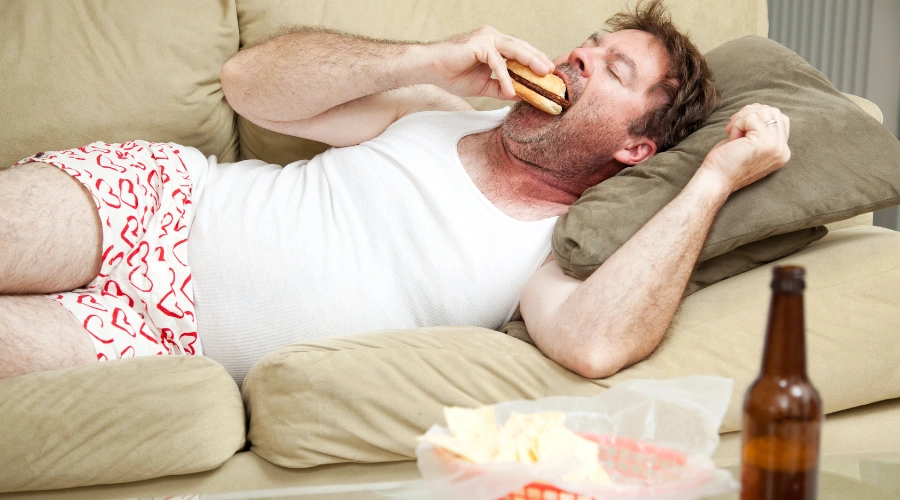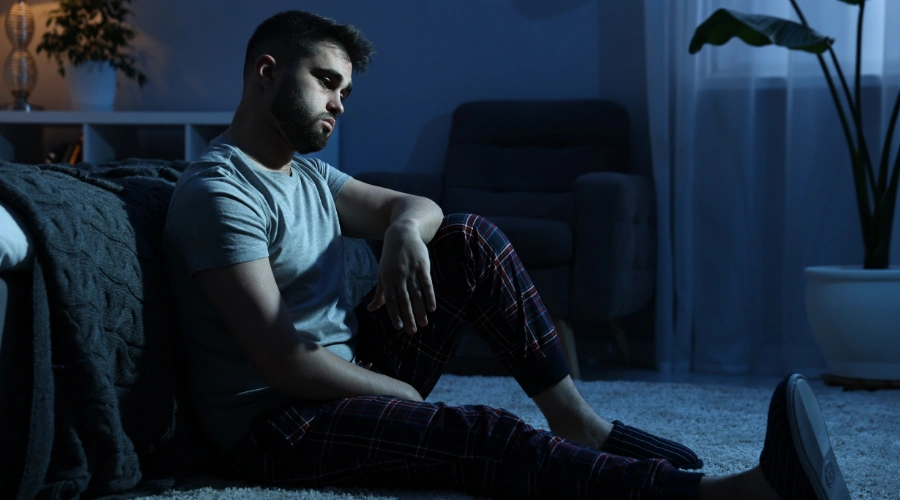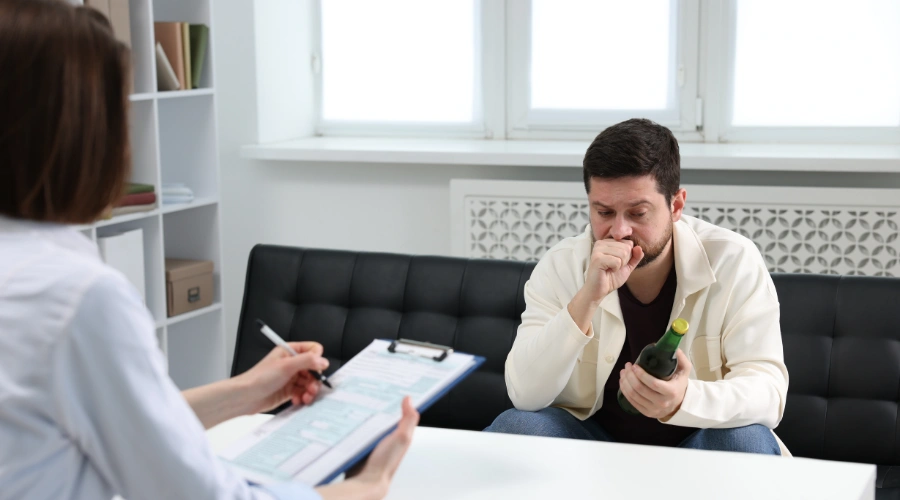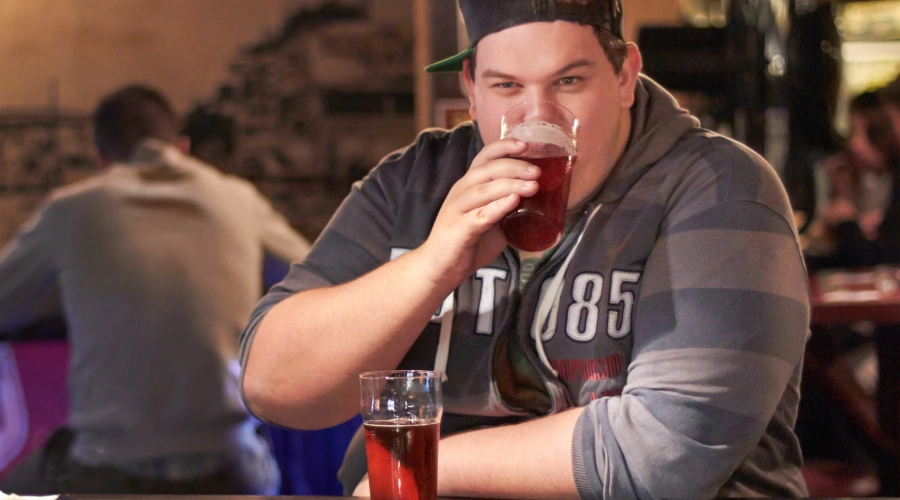The Effects of Drinking Alcohol on Fat Absorption And Weight Gain
If you’re trying to lose weight, you may think it comes down to calories, food choices, and exercise. But what about alcohol? It might seem harmless to unwind with a glass of wine or a few beers with friends.
Even if you’re drinking low-calorie alcohol, though, alcohol changes how your body processes fat. Drinking is more than just “extra calories”. It slows fat burning, disrupts sleep, and makes smart food choices harder, all of which inhibit your weight loss goals.
But how long does alcohol stop fat burning?
Our expert resource from South Shores Recovery will go into detail about the role of alcohol in weight loss and what you can do to keep pushing toward your goals.
How Alcohol Intake Can Make You Gain Weight

Many people drink alcohol to relax or feel carefree. It impacts your mood and energy. But the effects of alcohol on your body weight go beyond wanting to skip the gym the next day or eat unhealthily after a night out. Alcoholic beverages directly inhibit your body’s fat-burning process.
Drinking also provides empty calories, makes blood sugar levels fluctuate, lowers inhibitions, and disrupts sleep.
Alcohol Provides Empty Calories
Alcohol is high in calories without nutritional value. It contains nearly as many calories as fat, at seven calories per gram, but does not have any protein, fiber, vitamins, or minerals. It’s also very easy to overconsume, especially if you’ve had a hard day or are drinking socially with friends.
Before long, you may have consumed hundreds of empty calories without any nutritional benefit. These extra calories accumulate, but when it comes to the effects of alcohol on losing weight, calories are only the beginning.
Alcohol Affects Blood Sugar Levels
Have you ever craved high-carb or high-fat foods after a night of drinking? Your blood sugar levels might be to blame. First, alcohol causes blood sugar to spike. This initial spike can be even worse if you’re drinking alcohol mixed with sugary sodas or juices, or high-carbohydrate beers.
Not long after you quit drinking, there’s a sudden crash. You’ll feel hungry and tired, as your body desperately looks for something to help stabilize blood sugar levels. This leaves you much more likely to overeat or make poor food choices.
Alcohol Stops You From Burning Fat
The biggest thing affecting your weight loss efforts if you are a regular drinker is alcohol’s direct role in fat metabolism, regardless of how many calories are in the drink. Your body views alcohol as a toxin.
Even after one drink, your liver prioritizes metabolizing the alcohol and puts anything it considers “unnecessary” (like fat burning) to the side until that alcohol has been completely processed. This means that even a drink or two can press the pause button on fat burning for hours after you start drinking. It reduces calorie expenditure and slows weight loss, especially if you engage in frequent or heavy drinking.
Alcohol Lowers Your Inhibitions
Drinking has a way of reducing self-control and making you feel more carefree. This might seem like a positive when you’re trying to have a good time, but lowered inhibitions extend to the foods that you eat while under the influence. After a couple of drinks, extra dessert or a late-night pizza is easier to give in to.
Portion control usually goes out the window, and eating so late at night can disrupt digestive processes. Taking a night off won’t inhibit your goals entirely, but if drinking is frequent, these behaviors reinforce habits that contribute to weight gain.
Alcohol, Sleep Disruptions, and Weight Gain

It may seem easier to fall asleep after a night of drinking, but your sleep quality just isn’t the same. Your liver is still hard at work processing alcohol, so it shuts down other metabolic pathways.
Deep sleep cycles get shorter, and you’ll wake frequently through the night, even if you don’t remember it.
As you likely are aware, from working after tossing and turning all night, poor sleep can also be felt the next day.
Levels of the stress hormone, cortisol, increase. Increased cortisol leads to slower metabolism and increased fat storage. Hunger hormones like leptin and ghrelin become deregulated. They cause stronger cravings and make it hard to feel satisfied, even after you’ve eaten.
This leads to a greater risk of overeating and failing to stick to your diet plan. If you find yourself drinking regularly to relax at night, it becomes significantly harder to maintain a healthy weight, let alone reach your weight loss goals.
How Do You Know When Alcohol Use Is a Problem?
If you’re struggling to lose weight and want to cut back on alcohol, but feel powerless to do that, drinking might be more than a habit. You may feel dependent on alcohol or like you can’t relax without it.
Other signs are drinking more than you intended, even when it’s getting in the way of your goals. If you notice these patterns, take them seriously and consider getting support.
Problem Drinking vs A Drinking Problem
There’s a difference between “problem drinking” and struggling with alcohol use disorder. Problem drinking is a pattern that causes negative effects like weight gain, poor sleep, or strained relationships, but that doesn’t meet the full criteria for addiction.
With alcohol use disorder, you have a loss of control, physical dependence, and more severe consequences. In either case, finding the right support can make a big difference in meeting your body weight goals.
Find Support for Overcoming Drinking Habits at South Shores

Drinking alcohol can make moving toward your weight loss goals feel like an uphill battle, even if you’re choosing low-calorie options. Fortunately, by understanding how alcohol impacts fat burning, you’re one step closer to making decisions that support your goals.
If alcohol feels like more than just a habit, or you’re struggling to quit even as it takes you away from your goals, reach out to South Shores in Dana Point, CA. We can arm you with the tools and support that are sometimes needed to make better decisions regarding alcohol.
FAQs About Alcohol and Fat Burning
Can Drinking Alcohol Make Losing Weight Harder?
Simply put, yes. Drinking alcohol has a major negative impact on your weight loss goals in a lot of ways. It adds empty calories to your diet, disrupts hormone production, and slows fat metabolism. Even when you drink moderately, your body shifts its focus from burning fat to metabolizing alcohol.
Many (if not most) people continue to struggle with meeting their weight loss goals until they reduce or eliminate alcohol intake.
How Long After Drinking Alcohol Will Fat Burning Restart?
It is well known that your body will not start to burn fat again until it’s completely done metabolizing alcohol.
Things like your body size, how much you drink, if you stay hydrated while drinking, and your metabolism all play a role. Even so, it can take several hours after you’ve stopped drinking for your body’s metabolism to start working again.
For reference, it takes the liver about one hour to process a standard drink. Multiple drinks extend that window, and until all the alcohol has left your body, you won’t burn any fat.
Is There a “Safe” Amount of Alcohol for Someone Trying to Lose Weight?
“Safe” is different for each person. It depends on your goals, metabolism, and whether you’ll be able to stick to the boundaries you set around alcohol.
Some people include occasional drinks without major setbacks, but the safest approach when you’re trying to lose weight is to limit or avoid alcohol completely to lower your blood sugar and speed up your metabolism.
Does the Type of Alcohol You Drink Matter for Weight Gain?
To some extent, yes. Opting for alcohol served ‘neat’ (or on the rocks rather than mixed with sugary drinks) will have fewer calories and lower sugar content than a cocktail or even a beer.
This approach reduces overall calorie intake on your night out, but it is not a lasting solution if you are worried about how alcohol affects weight loss. Calories matter, but when you consume alcohol, its effects go beyond calories.
Alcohol consumption also interrupts your metabolism, disrupts sleep, and encourages overeating. The drink you choose (or don’t choose) doesn’t change these effects.
Does Drinking Light Beer or Wine Make a Difference?
Certain wines and light beers have fewer calories per serving compared to a sugary mixed drink or regular beer. Think Michelob Ultra and Heineken Premium as examples.
And while these options might reduce overall calorie intake, they won’t take care of the problem entirely. This is because they still stall fat metabolism while your body works to process the alcohol in them.
Can Exercise Offset the Effects of Alcohol Consumption on Fat Metabolism?
Yes, but only to a limited degree. Healthy exercise certainly does support overall metabolism (and helps burn calories in many cases), but it won’t fully cancel out alcohol’s effects. Your body is still going to prioritize burning alcohol before it attends to anything else.
For the health-conscious, we should also note that drinking affects muscle recovery, hydration, and sleep quality, making it harder to get a good workout as well as to keep the weight off.


Recent Comments